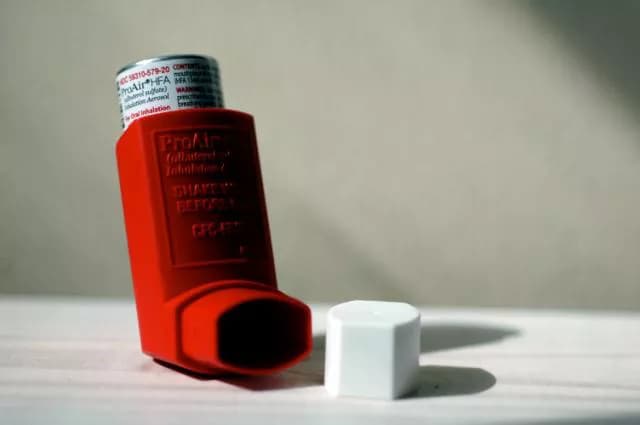
Treating Asthma Or COPD With Steroid Inhaler Increases The Risk Of Hard-To-Treat Infections
Older people who use steroid inhalers for asthma or chronic obstructive pulmonary disease (COPD) are more likely to suffer particular bacterial infections, according to a large study published in the European Respiratory Journal.
Worldwide, asthma and COPD affect hundreds of thousands of people and they are commonly treated with steroid inhalers to reduce symptoms and improve lung function.
However, the new study suggests that these inhalers also increase the risk of lung infections caused by nontuberculous mycobacteria, which are notoriously difficult to treat and resistant to a number of common antibiotics.
The research was led by Dr Sarah Brode, Assistant Professor of medicine at the University of Toronto, Canada and a staff respirologist at the University Health Network and West Park Healthcare Centre. She explained: "These infections are not particularly common but they are chronic and difficult to treat, and are associated with an increased risk of death. Treatment typically requires at least three antibiotics given for longer than a year and this can still fail to tackle the infection."
The study included 417,494 people with COPD or asthma aged 66 and older, who had all been prescribed medicine for their condition at least once.
Of these patients, researchers found that 2,966 had also been diagnosed with nontuberculous mycobacteria infections and they compared this information with whether they used a steroid inhaler, the type of steroid they had used, and how much they had used it.
They found that people who were currently using steroid inhalers were around twice as likely to be diagnosed with an infection of this type, and that the longer they had been taking the steroid, the greater the risk. They also discovered that one particular type of steroid, called fluticasone, was particularly risky.
Previous research has suggested that steroid inhalers hamper the body's ability to fight infections by reducing or impairing the cells of the immune system.
Dr Brode said: "Steroid inhalers are critical treatments for managing asthma symptoms for most patients. Although they have also been shown to benefit patients with COPD, they are less important in the management of this condition, and they may only provide more benefit than harm in a sub-set of COPD patients. There is an ongoing debate on which patients with COPD should be treated with inhaled steroids.
"This research suggests that patients should discuss whether they need to use steroid inhalers with their clinicians, and whether the benefits outweigh the potential harms. If they do need to use them, they should be on the lowest effective dose.
"Clinicians should carefully consider the potential benefits and harms of steroid inhalers in patients with asthma or COPD, especially those who have already had an infection of this type in the past."
Professor Guy Brusselle, Science Council Chair of the European Respiratory Society, said: "This is a large and important observational study on the effects of steroid inhalers in older people with asthma and COPD. Although not common, infections caused by nontuberculous mycobacteria are serious and difficult to treat. We must consider the effects of steroid inhalers on the risk of these infections alongside their known benefits and side-effects.
"Patients who are prescribed steroid inhalers should not stop their medicine. But, if they are concerned, they should speak to their doctor about the pros and cons of the treatment and whether it is right for them."
Dr Brode and her colleagues continue to study this group of patients and are now investigating which treatments might be most effective against nontuberculous mycobacteria infections.
Materials provided by European Respiratory Society (ERS). Note: Content may be edited for style and length.
Disclaimer: DoveMed is not responsible for the accuracy of the adapted version of news releases posted to DoveMed by contributing universities and institutions.
References:
Sarah K. Brode, Michael A. Campitelli, Jeffrey C. Kwong, Hong Lu, Alex Marchand-Austin, Andrea S. Gershon, Frances B. Jamieson, Theodore K. Marras. (2017). The risk of mycobacterial infections associated with inhaled corticosteroid use. European Respiratory Journal. DOI: 10.1183/13993003.00037-2017
Related Articles
Test Your Knowledge
Asked by users
Related Centers
Related Specialties
Related Physicians
Related Procedures
Related Resources
Join DoveHubs
and connect with fellow professionals

0 Comments
Please log in to post a comment.